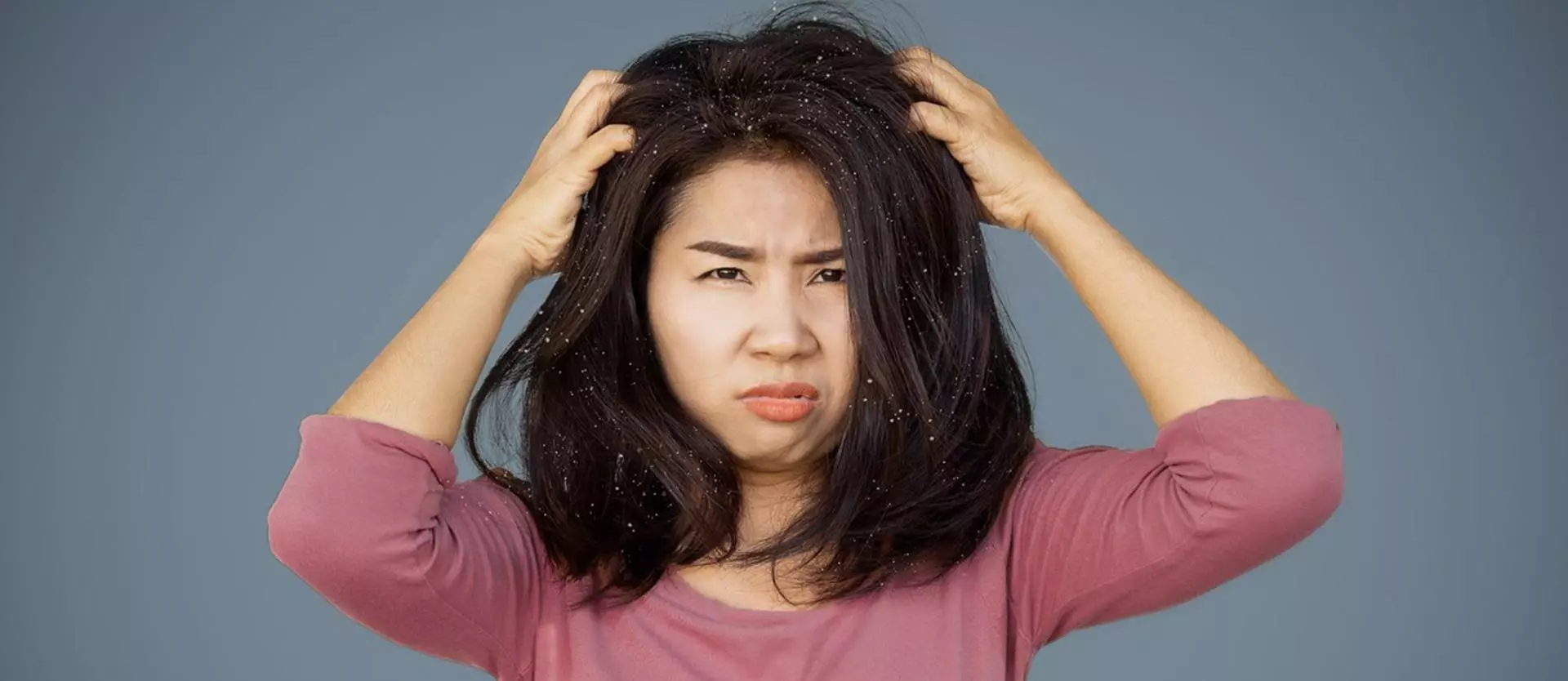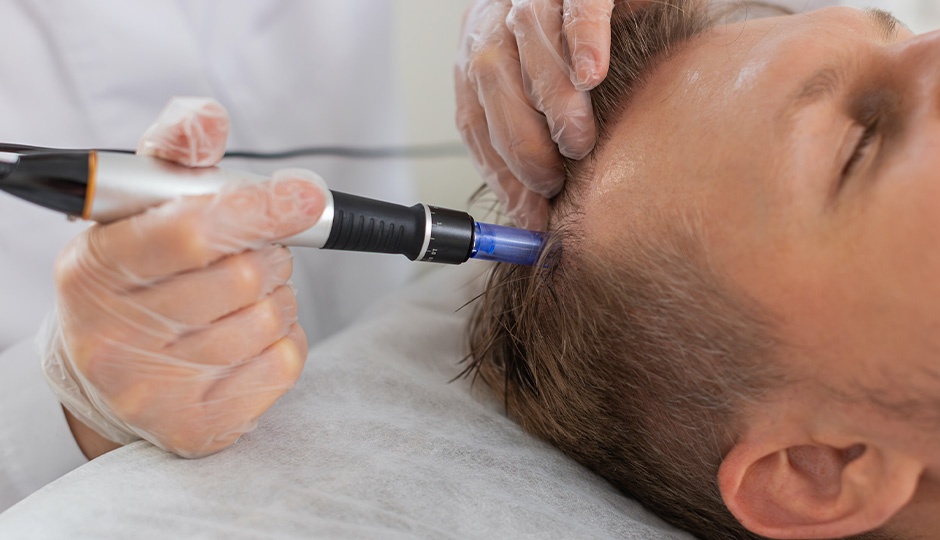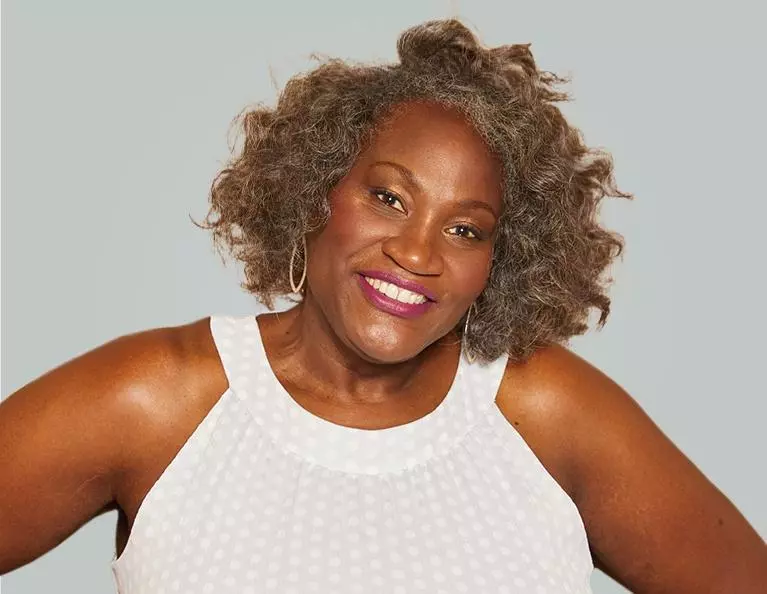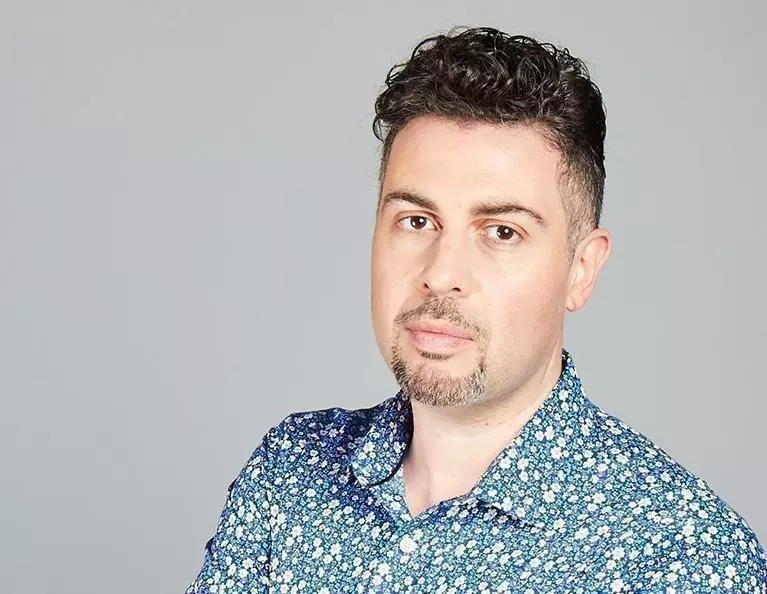Seborrhea dermatitis is a type of chronic skin condition that impacts many people. It causes areas of the scalp to become red, inflamed, greasy, and even flaky. These patches can occur anywhere but are most common on the scalp. Most people report that the patches of skin itch, and that it is a constant, irritating feeling. Those who have this condition typically have dandruff from it. While this condition is not that common, many people with it may also experience hair thinning or hair loss. Is there a connection?
Do You Have Seborrhea Dermatitis?
First, consider the most common symptoms of this condition. The scalp is typically red or inflamed. These areas typically have areas of flaky skin. For many people, that flaking can lead to a constant need to scratch. The skin often feels greasy, even with washing often.
This occurs as the result of an overproduction of thick sebum. Sebum is an oil that is produced by the sebaceous glands. Its goal is to keep the skin’s moisture properly balanced. In some people, it can be overproducing this amount of oil. When it does that, it can lead to the development of seborrhea dermatitis. The cause of this overproduction is not well understood by researchers. It is believed to be related to genetics – if you have a family member that had it, you are more likely to have it yourself. In some people, it may be due to autoimmune disorders in which the body’s immune system does not recognize its own tissues and attacks it.
But Does It Cause Hair Loss?
The condition itself does not cause hair loss. There is no direct connection to hair thinning or hair loss. However, the condition is irritating, and as a result of that, it can lead to significant scratching. Scratching the skin leads to damage to the surface of the scalp, including the hair follicles. If the follicles are damaged, they cannot produce hair, which may be why many people see hair thinning directly in areas where these patches form.
A secondary potential link comes from the growth of Malassezia. This is a type of yeast that is found naturally on the skin. However, when there is an overproduction of seborrheic dermatitis, that can trigger an overproduction of Malassezia because it creates a moist, warm environment for the yeast to grow. In some people, it can become quite excessive. When that happens, it creates even more inflammation on the scalp – redness, damage, itching, and even open sores. This makes it much more difficult for your hair to grow properly.
What Can You Do If You Suspect You Have Seborrheic Dermatitis?
The good news is that if you think you have seborrheic dermatitis, it is likely that there are treatments that can help you. However, not all treatments work for everyone. You may have to try several options before getting the results you want.
Many people start with an over the counter product. There are various medicated shampoos that may be able to help. Many of these treat the dandruff that builds up in the hair – which is often behind the itching. Look for products that have the right ingredients, such as pyrithione zinc, ketoconazole, or salicylic acid.
For those that need more help, other options exist that can provide support. That include prescription treatments. Your doctor, after providing an assessment and treatment plan, may recommend the use of prescriptions, including corticosteroid creams and shampoos. These products help to reduce the inflammation you may have – another common cause of the scratching. This can help to increase the hair’s ability to grow properly.
Antifungal cream and gels may also be helpful at the prescription level. These products can help with the treatment of severe seborrheic dermatitis. Antifungal medications are yet another option. These are oral medications but are typically only used when other treatments do not work.
If you have damage to your skin, the right treatment enables that to heal, in most cases. In some situations, the damage done to the scalp is permanent or may take a long time to improve. Many people may find their hair grows back once the inflammation and patchy areas of the skin improve.
To learn more regarding treatments for oily scalps, contact the team at Unique Hair Concepts for a complimentary consultation.






